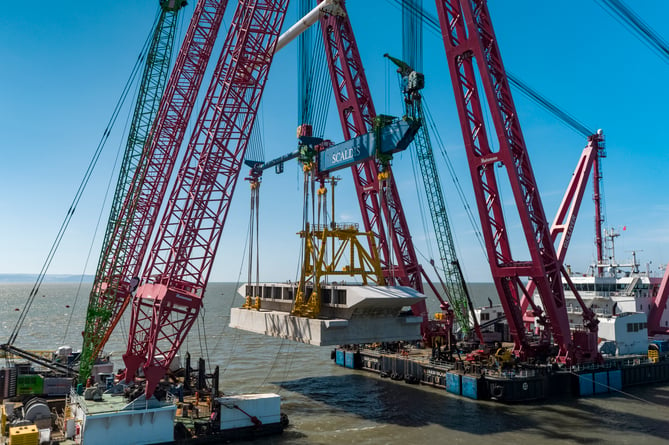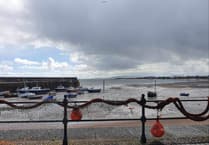MILLIONS of fish could be killed every day by the Hinkley Point C nuclear power station if owner EDF was allowed to back out of a planning condition, campaigners fear.
The Stop Hinkley anti-nuclear group said EDF had refused to fit acoustic fish deterrents on its two off-shore massive cooling water intake heads.
Stop Hinkley spokeswoman Katy Attwater said EDF now looked to be pressuring the Environment Agency to drop the planning condition which required the acoustic fish deterrent measures.
Ms Attwater said the agency had launched a four-week consultation on whether the Hinkley C site’s operational water discharge activity permit should be varied.
She said: “It looks to us very much like the Environment Agency is being forced to make a decision which will result in the death of millions of fish every day.
“The Severn estuary supports some of the most important and protected habitats in the UK.
“EDF appears to be absolutely determined not to spend the money to install AFDs and is pressurising the agency into backing down.
“This change would be disastrous for the Severn estuary and all the fish species it supports to breed and travel into its tributaries, nine of the greatest rivers of England and Wales.”
Ms Attwater said if the EDF changes went ahead, the company would then need to apply to the Planning Inspectorate for a variation of the Development Control Order (DCO) which gave it permission to build the nuclear power station.
To have the best opportunity to remove the fish deterrent measures from the DCO the company was in discussions with various parties, including the Environment Agency.
Ms Attwater said EDF claimed measures it planned to take would improve the prospects of fish populations and its aim was for Hinkley C not to have a negative impact on marine life in the Bristol Channel.
An EDF spokesman said the company was proposing a range of measures at Hinkley C to protect fish from the plant’s cooling water system.
They included a fish recovery and return system and special water intakes designed to reduce the number of fish entering them.
However, evidence showed the original proposal to also use underwater sound to cause some species of fish to swim away from the intakes would have little effect.
The spokesman said: “Many power stations have taken cooling water from the Bristol Channel in the past with no detrimental impact on fish populations.
“Hinkley Point C will be the first to include any fish protection measures at all.
“The amount of fish killed per year could be equated to the annual catch of a small fishing vessel.”




